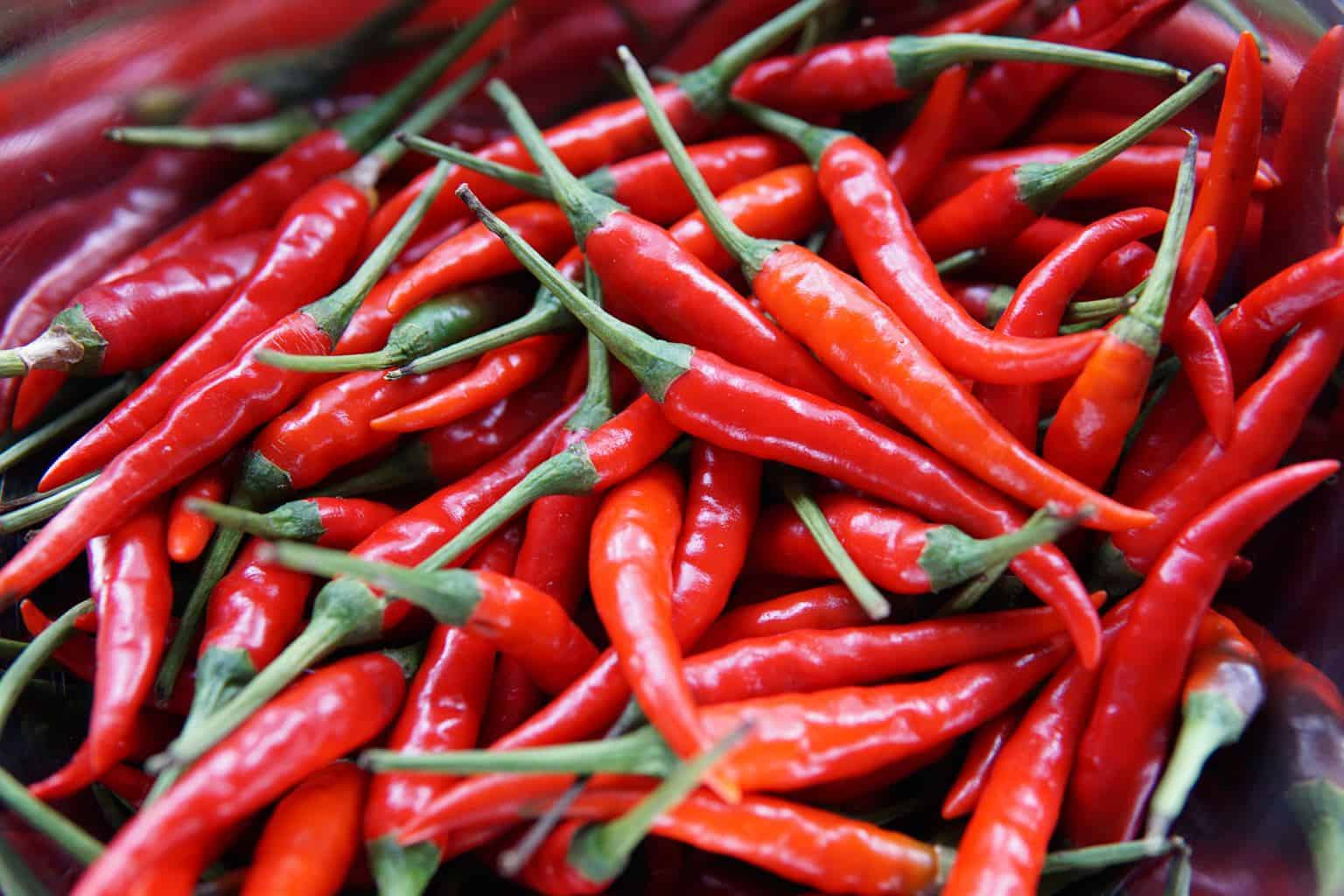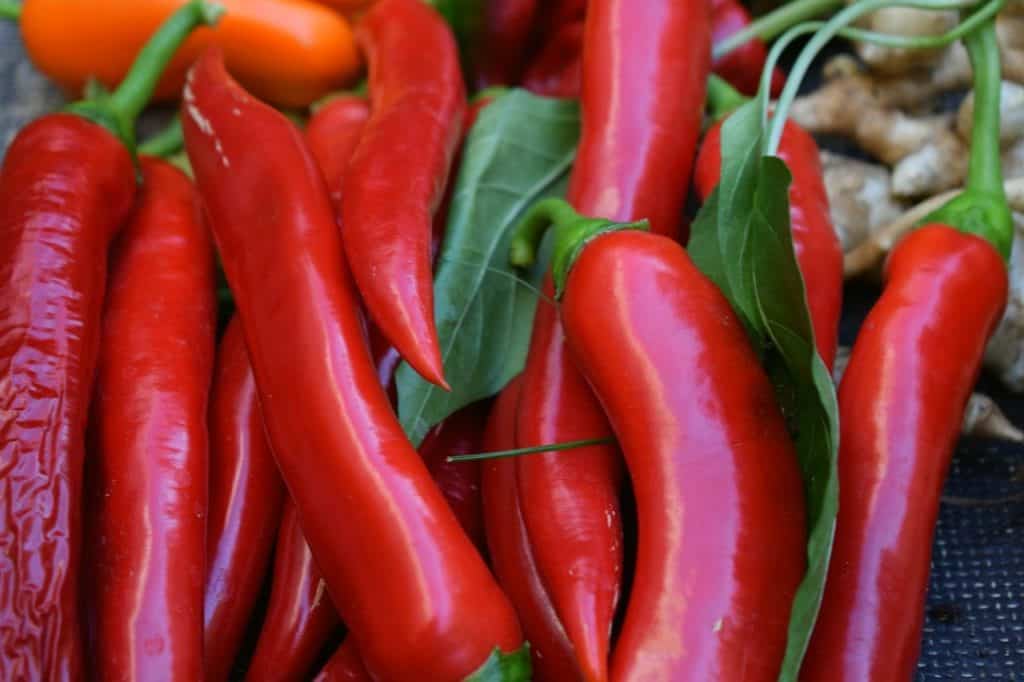- PhentermineLearn more about phentermine and how to get the most from your weight loss journey.
- ResourcesAdditional information and tools to help you make the most of your effort.
- AlternativesLearn more about the most popular weight loss medications and science-backed supplements
Is Cayenne Pepper Really Effective for Weight Loss?
Published on December 9, 2024

Want to shrink down? Switch it up by combining regular workouts with some changes to your diet. Surprisingly, certain foods can speed up your path to a slimmer you. Bet you didn’t know that **cayenne pepper** isn’t just for adding a zing to your dishes; it might be the hidden ace up your sleeve for losing extra weight. Let’s explore how this hot spice can ignite your weight loss quest and melt away that pesky fat.
What is cayenne pepper?
Cayenne pepper is a type of chili peppers. Originally grown in Central and South America, these peppers are moderately hot and are used widely for flavoring dishes. Cayenne peppers are usually red, thin, and about 10 to 25cm long. They are frequently enjoyed by people who like spicy food.
Uses For Cayenne Pepper
Besides culinary, cayenne peppers also have medicinal purposes. Their health potential is impressive. For centuries cayenne peppers were used to address a number of health problems, but science is still trying to catch up with traditional medicine.
Numerous studies have confirmed the health benefits of cayenne peppers in the treatment of many diseases and health conditions, but can it help with your weight loss efforts? Below, you’ll discover if this chili pepper really burns calories.
Can cayenne pepper promote weight loss?
Cayenne pepper is in the formula of many weight loss supplements, and it is believed that intake of this pepper through diet could help people lose weight.
The current pieces of evidence are very promising but more studies are needed to be more sure.
Appetite reduction
Overeating is a common problem today and a major contributor to overweight and obesity. It’s not, actually, someone’s goal to overeat. This usually happens when a person keeps eating to stop being hungry, but they don’t feel full. This interferes with your body’s energy balance. You end up with a higher energy intake than calories burned. A negative energy balance results in weight gain, as your food intake is too high.
High Appetite Causes
Reasons behind bigger appetite are numerous including an unhealthy diet or an eating pattern that doesn’t contain foods that promote fullness and satiety. It’s needless to mention cravings that are difficult to resist. Appetite reduction is an important aspect of weight loss and its management. Studies show that cayenne peppers can help you make it happen.
Cayenne Pepper And Appetite
Cayenne peppers contain capsaicin, an active compound that is responsible for a vast majority of its health benefits. A study from the International Journal of Obesity found that capsaicin and capsaicinoids have the potential to prevent the increase in hunger and accentuate the impact of caloric restriction on weight loss.
In addition, they prevent a decrease in fullness, energy expenditure, and a decrease in fat oxidation all of which would otherwise occur with energy restriction. These effects postpone the occurrence of resistance to help you lose weight. Capsaicin also improves sleep which can also facilitate energy balance (1).
Other studies have also shown that cayenne peppers (thanks to capsaicin) can reduce a person’s appetite (2, 3, 4). You are now less likely to suffer from overeating, so weight loss becomes easier. Combine it with some lemon juice for a cleansing effect.
There’s no need to worry about spicy food. It is possible to use this chili pepper without feeling the burn.
Faster metabolism
Metabolism is a process wherein the body converts food and drinks into energy. During this process calories from food are combined with oxygen in order to produce energy without which your body cannot function. A faster metabolism burn calories more effectively.
The Role Of Metabolism
Metabolism is important for weight management because foods that aren’t converted to energy are stored as fat, which, in the long run, can cause a problem. In order to boost their weight loss prospects, people work on accelerating their metabolic rate, but many of them opt for unhealthier methods to do so.
Cayenne Pepper And Your Metabolism
Intake of cayenne pepper, through food or supplementation, can accelerate metabolism in a safe and natural manner. It has been found to help with vascular and metabolic health.
A study from the journal PLoS One found that capsaicin, a main active compound in cayenne peppers, helps increase the amount of heat the body produces thus making you burn more calories during the day (5). Capsaicin works through diet-induced thermogenesis.
The European Journal of Nutrition published interesting research which showed that people who ate breakfast that involved capsaicin and medium-chain triglyceride oil lost 50% more calories during that meal compared to subjects who ate neither (6).
Some studies showed that capsaicin had rather moderate results in terms of accelerated metabolism. In one study eating 1g of cayenne pepper burned ten more calories over four and a half hours compared to not eating any cayenne pepper at all (7).
Besides capsaicin, cayenne peppers also contain a compound called dihydrocapsiate which also proves to exhibit thermogenic effects that accelerate your metabolism (8).
It’s important to mention that people who generally don’t eat cayenne peppers may benefit more from the metabolism-boosting effects of capsaicin. If you eat them regularly, your body adapts to them meaning effects are weaker. Thus, consider implementing the red pepper when following a master cleanse program. To enhance the effects of the cleanse, add some green tea to your daily diet.
Improved athletic performance
Most people want to lose weight without exercising, and chances are high you’ve come across a multitude of articles and products that promise you can do so. The healthiest way to lose weight and keep it off is to make changes in your lifestyle by modifying your diet and exercising more.
A healthy diet really doesn’t change anything if you have a sedentary lifestyle. The best way to stick to the exercise regimen is to choose an activity you like because you won’t look for excuses to avoid it. What’s amazing about cayenne peppers is that they can help you get the maximum out of your physical activity through enhanced athletic performance.
A study from the journal Nutrients found that supplementation with capsaicin exhibited anti-fatigue effects and improved exercise performance. The study also found that capsaicin improves grip strength, endurance, and induced other effects which are important for exercise enhancement (9).
In other words, the consumption of cayenne peppers (through food or supplements) can help you perform better during a workout routine. The better you perform, the better effects your workout regimen will have on your body. When you get the maximum out of your athletic activity, the body burns more calories which promotes weight loss. It’s needless to mention that better athletic performance is a major motivator and a confidence boost as results are visible on the body, and you want to keep doing that.
Weight maintenance
A common concern for many overweight or obese individuals is weight maintenance, i.e. how to avoid regaining lost pounds. It’s not unusual for people to lose weight successfully only for it to come back again. This has a negative impact on their motivation to start a new weight loss regimen, and it can also harm their health.
Weight maintenance requires a healthy lifestyle too. We need to adopt certain habits such as a well-balanced diet and regular exercise and keep doing them even after we achieve desired body goal. Cayenne peppers can help you maintain your weight, evidence shows.
One review of evidence on the role of capsaicin in weight loss and its management found that it could help you maintain your weight in a healthy range. People who consumed red pepper were less likely to be obese. Intake of capsaicin promotes fat loss, particularly in the stubborn abdominal area.
Weight loss treatment with capsaicin promotes sustained fat oxidation during weight maintenance, unlike placebo. The compound positively influences weight through thermogenesis, appetite reduction, and faster metabolism, review confirmed (10).
Potential risks and side effects
While cayenne peppers are often included in detox or cleansing programs, it is important to consider both the pros and cons. The pepper might help you lose weight, but understand what to expect while taking it.
Studies involving capsaicin and its role in weight loss showed participants didn’t experience some adverse reactions, but more evidence on this subject is needed. If you want to take capsaicin in capsule form, you may need to be cautious, particularly if you have digestive problems.
You see, capsaicin capsules may cause stomach irritation and increase levels of stomach acid. Persons with heartburn and stomach ulcers should consult their healthcare provider prior to consuming supplements containing capsaicin.
Consuming excessive amounts of cayenne peppers can also irritate the stomach lining and potentially aggravate gastrointestinal disorders, but also some respiratory problems, and irritations of skin and eyes. When consuming cayenne peppers in diet always make sure it’s a reasonable or moderate amount. You may think the more you eat cayenne peppers, the better effects you’ll achieve, but that’s not entirely true.
In addition, you may also want to decrease the intake of cayenne peppers during the hot summer months. The reason is simple; cayenne peppers can increase body heat beyond your ability to sustain that heat. This can cause nosebleeds, the most common effect of overheating.
How to use cayenne pepper for weight loss?
Now that you know that cayenne chili peppers truly are effective for weight loss and it can help you keep it off, you’re probably wondering how to use it. Is there some special method that you may need to employ or what? Cayenne pepper is a spice, and like other spices, it’s incredibly versatile. That means there’s a number of options you can try out and consume cayenne pepper, especially if you didn’t eat it before.
For example, you can add cayenne pepper powder to the spice mixtures such as barbecue rub or curry. It works well with other spices, i.e. it enhances the flavor of food while, at the same time, helping you experience weight loss. Just make sure you prepare your food in a healthy manner.
You can also use cayenne pepper to prepare healthy, homemade dressing that also contains oil, vinegar, and other seasonings. Lemon juice goes great with this, and you can even add some pure maple syrup if you prefer a sweet taste. Make sure you choose olive oil or some other healthy alternative. Cayenne peppers can also spice up marinades. You can add cayenne pepper when preparing fish and other meals too. It’s versatile enough to match perfectly with all sorts of meals and ingredients.
Besides home-cooked meals, other ways to use cayenne peppers are via dietary supplements and through juices and smoothies. Juices and smoothies can be a good ally in your war against extra weight because they deliver much-needed nutrients and fiber that keep you feeling full in order to avoid overeating and stop cravings. You have the liberty here to mix and match different ingredients together with a pinch of cayenne pepper.
Conclusion
Cayenne peppers contain the active compound, capsaicin, which is responsible for a vast majority of its health benefits. Capsaicin is also behind the weight loss potential of cayenne peppers. Multiple studies have confirmed that cayenne peppers accelerate metabolism, promote thermogenesis, reduce appetite, and enhance athletic performance. All these factors are vital for safe and effective weight loss. If you’ve been wondering if cayenne pepper weight loss is for you, then now might be the perfect time to give it a try.
References
(1) https://www.ncbi.nlm.nih.gov/pubmed/26686003
(2) https://www.ncbi.nlm.nih.gov/pubmed/10743483
(3) https://www.ncbi.nlm.nih.gov/pubmed/19345452
(4) https://www.ncbi.nlm.nih.gov/pubmed/22038945
(5) https://www.ncbi.nlm.nih.gov/pubmed/23844093
(6) https://www.ncbi.nlm.nih.gov/pubmed/23179202
(7) https://www.sciencedirect.com/science/article/abs/pii/S0031938410004063
(8) https://www.ncbi.nlm.nih.gov/pmc/articles/PMC2954444/
(9) https://www.ncbi.nlm.nih.gov/pmc/articles/PMC5084035/
(10) https://www.ncbi.nlm.nih.gov/pmc/articles/PMC5426284/






